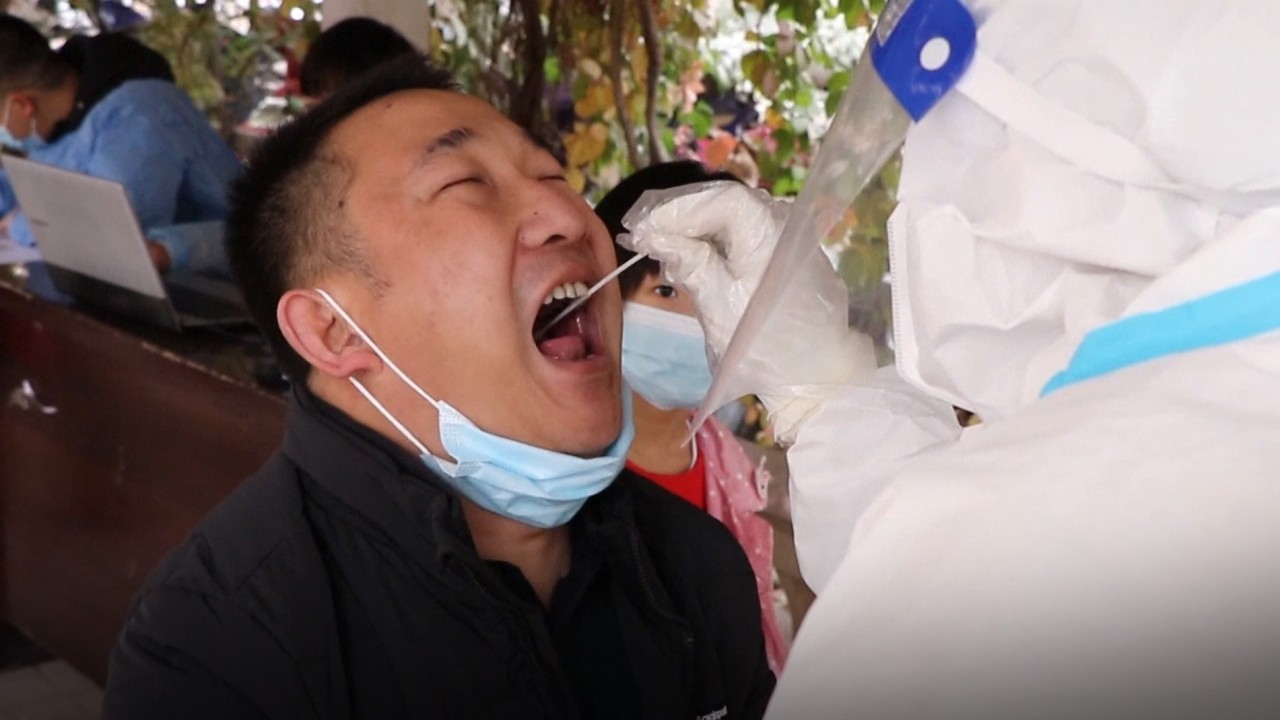
01:42
China’s city of Kashgar finds 137 new coronavirus cases after infected teen sets off mass testing

The city of Kashgar in China’s remote far west is expected to complete nucleic acid testing for all 4.6 million residents by Tuesday as it battles the latest Covid-19 outbreak, local health authorities said.
The local health authorities reported on Monday evening that extensive testing had found 163 cases of infection in the city after a 17-year-old girl was found to be positive during a routine test.
Meanwhile, authorities raised the emergency response to the highest level and the National Health Commission sent a work team to Kashgar to help. At least four townships have been designated “high-risk” areas.
The outbreak in Kashgar came as the worldwide tally of coronavirus infections reached almost 43 million and many countries, including the United States, were still struggling to contain the disease. Several countries have been troubled by their citizens’ refusal to follow social distancing guidelines, and in some authorities have been slow to conduct testing.

01:42
China’s city of Kashgar finds 137 new coronavirus cases after infected teen sets off mass testing
Kashgar is the latest Chinese city to enforce blanket testing. Earlier this month Qingdao, a port city in China’s eastern seaboard, tested 11 million people in five days after a new cluster of local Covid-19 infections emerged.
Zeng Guang, chief epidemiologist of the Chinese Centre for Disease Control and Prevention, said the fact that all cases found by Sunday were asymptomatic suggested a declining morbidity of the virus and expressed optimism that the outbreaks would not create huge pressure on local hospitals.
However, he said more contact tracing was needed to determine the route of transmission.
“It seems that the transmission rate [in Kashgar] is very high and we need to examine how this has happened,” Zeng said. “We need to carry out contact tracing not just for the young girl but all 137 cases.
“Also, we don’t have a great deal of experiences of prevention and control in rural areas so we should expect to face some challenges in curbing the spread in rural villages, especially in areas where the majority of the population is [of an] ethnic minority [group],” he said.
Zhao Wei, a professor of the School of Public Health of Southern Medical University in Guangzhou, suggested that the rapid spread of the disease might be related to the onset of winter, as research has shown that the coronavirus survives longer in lower temperatures.
“But the weather may have only provided the external factor and the key question is, how did the virus get transmitted [to Kashgar]?” Zhao said.
Wang Guiqiang, an adviser to the National Health Commission and director of the Infectious Diseases Department at Peking University First Hospital, told China Newsweek that the identity of Kashgar’s “patient zero” remained a mystery.
“We can find out how the infections happened by examining the levels of antibodies [in the infected patients] and it is best to carry out gene sequencing so we can trace the origin of the virus,” Wang said.

03:05
Global coronavirus cases pass 40 million mark as infection rates rebound in the US and Europe
Zhao from Southern Medical University also said that the coronavirus may have been spreading in Kashgar for some time, since the teenage girl had no travel history.
“There are many flights in Kashgar every day, so (it) is possible that Kashgar has experienced low-level transmission for some time and hence the virus might have spread beyond Kashgar through these infected people,” Zhao said.
An 18-year-old resident of Kashgar commented on Weibo, a Twitter-like messaging tool, on Monday that help would be needed if the government imposed lockdown measures to break the transmission of the virus.
“As ordinary citizens, we are willing to cooperate with epidemic control work and we will not leave home for work. I just hope that the government can guarantee us an adequate supply of living materials and that prices will be kept stable,” the young man wrote.